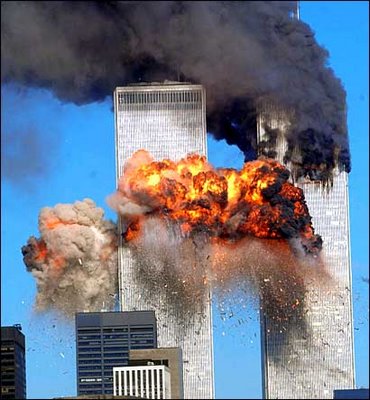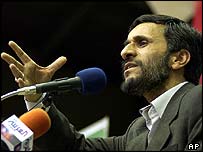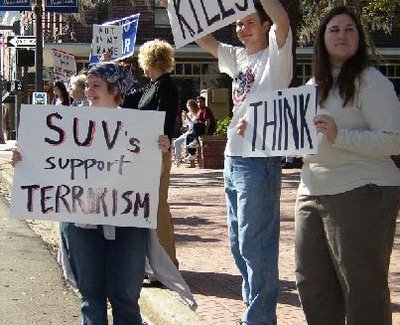 This is going to be substantially off the beaten path for me. I spent the day in the car, driving to Charlotte to pick up a friend and bring him back. He’s recently taken a job in Dallas, but he and the missus haven’t moved yet, so he had to fly back, and Charlotte is a major hub, although there are big airports a little closer. It’s a 3-hour trip, each way.
This is going to be substantially off the beaten path for me. I spent the day in the car, driving to Charlotte to pick up a friend and bring him back. He’s recently taken a job in Dallas, but he and the missus haven’t moved yet, so he had to fly back, and Charlotte is a major hub, although there are big airports a little closer. It’s a 3-hour trip, each way.I got to Statesville just before noon, and went to the JR Outlet to buy some cigars, then headed to the Carolina Bar-B-Q for lunch. It is a small place, twenty or so years old, and is privately owned (not a franchise), and it has a personality. It’s a kind of “down home” place, run and staffed by natives of the area, very unassuming and down to Earth. As you go through the door you are at the cash register, and I saw two signs posted there. The first one said, “Please be seated for service,” and the second on said, “If you are grouchy, irritable, or just plain mean, there will be a $10 charge just for putting up with you.”
I like their attitude.
They had two seating areas, one to the left and one to the right. I naturally headed to the left side.
I saw a set of booths along a divider that consisted of three large flags, one for the Air Force, one for the Marine Corps, and one for the Navy. I didn’t see a flag for the Army, but I’ll bet there was one on the other side. When I looked to the right, there was one booth on the wall, and behind that the entrance to the kitchen. On the wall was a POW-MIA flag.
I like their attitude.
Below the POW-MIA flag was one of those large outside thermometers, probably about three feet tall and eight inches wide, which advertised a product. The POW-MIA flag covered just enough of the top of the thermometer that I couldn’t see the whole name of the company advertised thereon, but I could read the words “horse liniment.” Below the mercury tube that told you what the temperature was, it said, “also good for mules and jackasses.” I looked up at the top of the door to the kitchen, and a sign protruded which said, “Keep your hands off the waitress.” I sat in the booth near that sign.
The waitress that I was forbidden to touch was very prompt and very nice, but wasn’t someone I wanted to fondle. Lucky me. The food was good, and the prices reasonable. I had a barbecue tray consisting of pulled pork, slaw and hush puppies, with a side of baked beans and iced tea, and I got out of there for about $11, and that included a $3.00 tip.
The place mats were interesting, and that actually is what prompted me to write this. The place mat was a printed piece titled “Mountain Talk,” and featured artwork of hillbillies and scenes of mountain life surrounding mountain terms and definitions. The introductory material says, “The charm of the Appalachian mountain folk … lies in their isolation from outside influences. Their manner of speech and way of life dates back to earlier more relaxed times.” Having spent many years living in the Appalachian Mountains, I have heard many of these terms, although not too many people that I personally know use many of them. For your edification and amusement, I offer you a few:
Askeered of – Afraid of, as in, “He’s askeered of his shadow.”
Holler – A small valley, as in, “She comes from over in the holler.”
Vittles – Victuals, as in, “I hope ma’s got the vittles on when I git home.
Smart – To hurt, as in, “It shore smarts where I got hit.”
Fur piece – A great distance, as in, “He lives a fur piece up the holler.”
Pizen (pronounced “pie-zen”) – Poison, as in, “I seen lotsa pizen snakes in these parts.”
Crick – A stiffness, as in, “Marvin has a crick in his neck.”
Clum – Climbed, as in, “I clum thet tree for the last time.”
Poke – Paper bag, as in, “He put the chicken in a poke.”
Whupped – Whipped or spanked, as in, “Pa shore whupped me when I lied to the widder woman.”
Et – Eaten, as in, “Have they et?”
Gander – To look at, as in, “Take a gander at her.”
Technorati Tags: Hillbillies, Mountain Life, Country Folk













